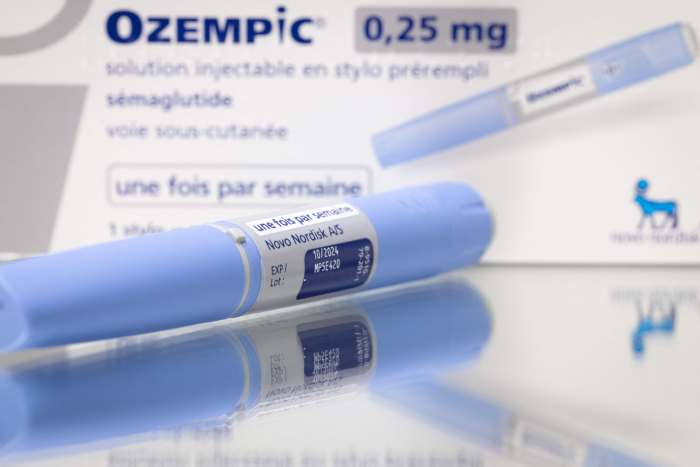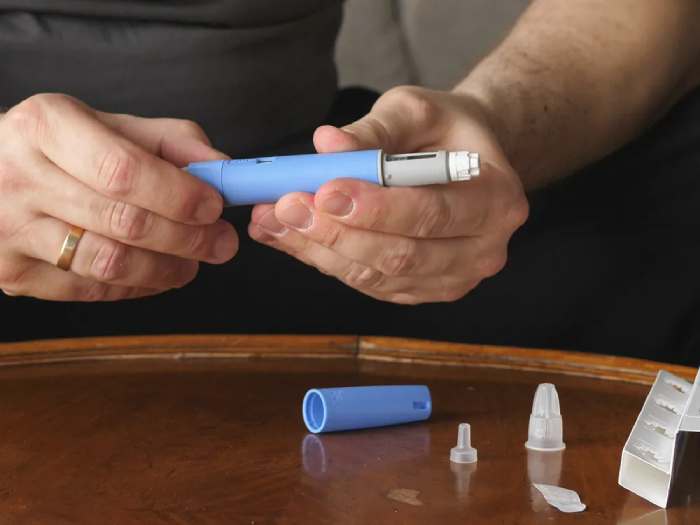With the snap of your fingers, the weight you worked hard to lose can come back with a vengeance. If you’ve recently stopped taking Ozempic, you may be concerned about regaining the weight you’ve lost. Don’t worry.
You can keep the weight off for good by making diet and lifestyle changes. Read on to learn how to avoid gaining weight after stopping Ozempic.

Contents
- 1 Diet Changes: Adopting a Balanced and Healthy Eating Plan Post-Ozempic
- 1.1 Exercise Routine: Incorporating Regular Physical Activity to Support Weight Maintenance
- 1.2 Stress Management: Implementing Techniques to Cope with Stress Without Impacting Weight
- 1.3 Sleep Habits: Prioritizing Quality Sleep for Overall Wellbeing and Weight Regulation
- 1.4 Considering Supplementary Support to Ensure Nutrient Balance Post-Ozempic:
- 1.5 Frequently Asked Questions:
- 1.6 Conclusion:
Diet Changes: Adopting a Balanced and Healthy Eating Plan Post-Ozempic
Once you’ve stopped taking Ozempic, you must change your diet to avoid weight gain. Meal planning is a great way to ensure you’re eating healthily. Plan your daily meals, and focus on whole, unprocessed foods. Ensure you include plenty of vegetables, lean proteins, and healthy fats.
Also, try to limit processed foods, sugar, and saturated fat. Portion control is also important. Use smaller plates and bowls, and measure out your servings so you know how much you’re consuming. Eating slowly and mindfully can also help you to avoid overeating.
With a little attention to your diet, you can prevent weight gain after stopping Ozempic.
Exercise Routine: Incorporating Regular Physical Activity to Support Weight Maintenance
In addition to meal planning, exercising regularly is an effective way to avoid weight gain after stopping Ozempic.
A fitness routine should include regular cardio exercise combined with strength training. Aim for around 150 minutes of moderate-intensity weekly exercise, and include strength training at least 2 days per week.
To help reduce weight gain, focus on low-carbohydrate activities like walking, running, and biking. These activities will help to increase your metabolism and burn more calories.
Additionally, getting a good night’s rest is important, as lack of sleep can lead to weight gain.
Finally, stay hydrated by drinking plenty of water throughout the day. Exercise and a healthy diet can help you maintain a healthy weight after you stop taking Ozempic.
Stress Management: Implementing Techniques to Cope with Stress Without Impacting Weight
To manage your stress levels and avoid weight gain after stopping Ozempic, it’s important to take time every day. Here are some effective strategies to help you do just that:
- Practice mindful eating.
- Get plenty of rest.
- Engage in stress-relieving activities.
Mindful eating involves being aware of your thoughts and feelings as you eat and can help you identify signs of emotional eating. Adequate rest helps reduce stress and improve cognitive function, allowing you to make better decisions regarding diet and exercise.
Stress-relieving activities such as yoga, meditation, or a walk in nature can also help you control your stress levels.
Taking care of yourself is essential for managing stress and maintaining a healthy weight after stopping Ozempic.
Sleep Habits: Prioritizing Quality Sleep for Overall Wellbeing and Weight Regulation
Getting enough restful sleep is key to managing stress and avoiding weight gain after stopping Ozempic. To do this, try to go to bed and wake up simultaneously every day.
Establish a bedtime routine that helps you relax and get ready for sleep. Incorporate mindful eating and portion control into your daily diet. Cut out late-night snacking and limit caffeine intake in the evening. Exercise regularly and avoid screens before bed.
| Benefits | Risks |
|---|---|
| Improved sleep quality | Increased stress |
| Increased energy | Caffeine dependency |
| Improved mood | Weight gain |
| Reduced cravings | Poor concentration |
| Healthy eating habits | Poor appetite regulation |
Considering Supplementary Support to Ensure Nutrient Balance Post-Ozempic:

Taking supplements can be a great way to help prevent weight gain after stopping Ozempic. Here are some tips to consider when taking supplements:
- Timing: Take supplements simultaneously each day to get the most benefit.
- Types: Consider alternative supplements such as probiotics, omega-3 fatty acids, and fiber.
- Quality: Choose a quality supplement brand to ensure maximum absorption.
Sticking to a healthy diet and exercise routine is key to avoiding weight gain, but supplementing can also help. Timing and types of supplements are important, as well as the quality of the supplement.
Following these guidelines can help you stay on track and not gain weight after stopping Ozempic.
Frequently Asked Questions:
It can take several weeks to months to lose weight after stopping Ozempic. Developing a regular exercise plan and meal planning can help you reach your goals faster.
Yes! You can gain muscle while losing weight with a balanced diet and a tailored exercise routine. An anachronism for the journey ahead: arm yourself with the knowledge to reach your fitness goals!
You may experience withdrawal symptoms after stopping Ozempic, such as cravings and hunger. To avoid gaining weight, practice healthy eating habits and mindful eating.
Develop healthier eating habits and an exercise routine to help manage cravings for unhealthy foods. Incorporate fruits and vegetables, and cut down on sugar and fat. Exercise regularly to reduce stress and hunger.
On average, a regular yoga practice can boost metabolism by up to 4%, while mindful eating can reduce calorie intake by up to 20%. Incorporating these activities into your lifestyle can help you maintain a healthy weight.
Conclusion:
Managing Weight After Stopping Ozempic doesn’t have to be inevitable. You can take control of your health and body by making small changes in your diet, exercise routine, stress management, sleep habits, and supplements.
You can decide how you’ll look and feel – don’t be afraid to take the initiative and make it happen! With the right guidance, you can progress towards a healthier, happier you.

Santhan, known to many as Linda, combines her personal training expertise with exceptional motivational coaching skills. Her articles are not just informative but also incredibly inspiring, encouraging readers to take action and pursue their fitness goals. Linda’s unique approach to writing integrates practical fitness guidance with motivational elements, making her content both useful and uplifting.
